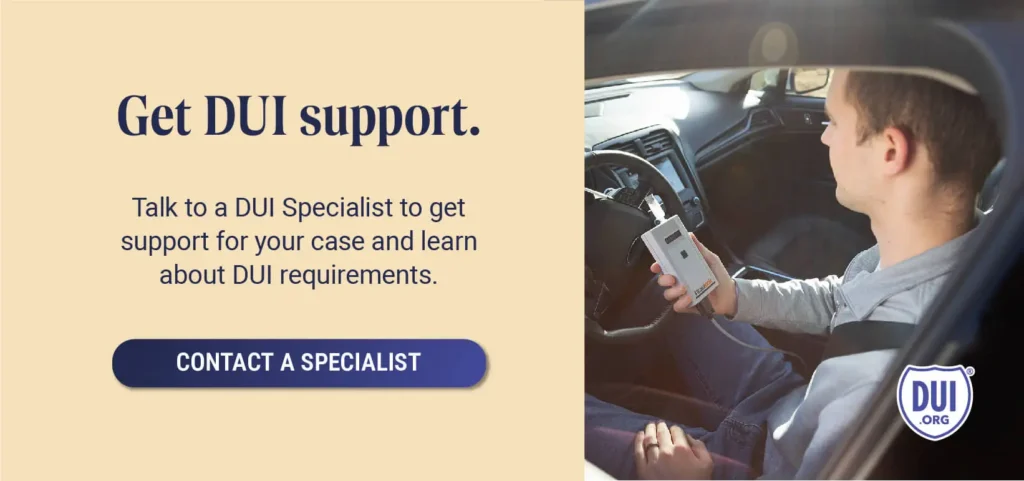
Being arrested for Driving While Intoxicated (DWI) in Texas can lead to serious legal consequences, and navigating the state’s laws and requirements can feel overwhelming. Texas DWI laws are strict and complex, so it’s essential to understand what you may face if charged with a DWI. This guide will walk you through the key differences between DWI and DUI in Texas, penalties for each offense, and additional factors that could affect your case.
DWI vs. DUI in Texas: What’s the Difference?
In Texas, DUI (Driving Under the Influence) is an offense specifically for minors (under the age of 21) who are caught driving with any detectable amount of alcohol in their system, following Texas’s zero-tolerance policy. For minors, there is no legal BAC limit; any amount of alcohol is grounds for a DUI charge.
For adults (21 and older), DWI (Driving While Intoxicated) is charged when a driver has a Blood Alcohol Concentration (BAC) of 0.08% or higher or shows signs of impaired driving ability due to alcohol or drugs. DWI charges may apply even with a BAC below 0.08% if law enforcement deems the driver’s abilities impaired.
Texas DWI Penalties
DWI penalties in Texas increase in severity with each offense, BAC level, and additional factors such as child passengers or prior incidents. Below is a detailed breakdown of Texas DWI penalties for first, second, and third offenses.
First DWI Offense
- Fines: Up to $2,000.
- Jail Time: Up to 180 days in jail, with a mandatory minimum of three days.
- License Suspension: Up to one year.
- Additional State Fine: $3,000, $4,500, or $6,000, depending on case specifics.
- Ignition Interlock Device (IID): May be required as a condition of bond or probation, particularly for BACs of 0.15% or higher.
Second DWI Offense
- Fines: Up to $4,000.
- Jail Time: One month to one year.
- License Suspension: Up to two years.
- Additional State Fine: $4,500 or $6,000 may be imposed.
- IID Requirement: Mandatory IID installation for a minimum of one year, especially for BACs of 0.15% or higher.
Third DWI Offense
- Fines: Up to $10,000.
- Jail Time: Two to ten years in prison.
- License Suspension: Up to two years.
- Additional State Fine: An additional $6,000 fine may apply.
- IID Requirement: IID installation is mandatory for at least two years.
DWI with a Child Passenger
If you are convicted of DWI with a child under 15 years old in the vehicle, Texas imposes enhanced penalties:
- Fines: Up to $10,000.
- Jail Time: Up to two years in jail.
- License Suspension: An additional 180-day suspension.

Texas Ignition Interlock Device (IID) Requirements
An IID may be required as part of Texas DWI penalties, especially if you’re seeking limited driving privileges through an occupational license. In Texas, IIDs are often mandatory for repeat offenders and first-time offenders with a BAC of 0.15% or higher. To meet IID requirements, you must:
- Apply for an Interlock Restricted License through the Texas Department of Public Safety (TxDPS).
- Use a state-approved IID provider for installation and maintenance.
- Cover all costs associated with the IID, including installation, monthly fees, and any required reporting.
SR-22 Insurance Requirement
Texas also mandates SR-22 insurance for DWI offenders, which proves you carry the required liability insurance to meet the state’s financial responsibility standards. SR-22 coverage in Texas must be maintained for two years after a DWI conviction. Failure to maintain this coverage can result in both license and vehicle registration suspension. Minimum SR-22 liability amounts are:
- $30,000 for bodily injury or death per person.
- $60,000 for bodily injury or death per accident.
- $25,000 for property damage.
DUI Penalties for Minors (Under 21)
For minors, Texas enforces strict zero-tolerance laws. A minor convicted of DUI faces:
- License Suspension: One year, with up to 18 months for repeat offenses.
- SR-22 Requirement: Required SR-22 filing and two years of coverage.
- IID Requirement: The court may require IID installation, with the possibility of reducing the suspension period to 90 days if the minor completes community supervision and other requirements.
Texas minors also face suspensions for alcohol-related offenses like possession, consumption, and public intoxication, with penalties increasing for repeat offenses.
DWI for Commercial Drivers (CDL Holders)
For CDL holders, DWI convictions can result in the loss of CDL privileges, potentially impacting your ability to work in the commercial driving field.
Additional Consequences of DWI Convictions in Texas
In addition to fines, jail time, and license suspension, DWI convictions in Texas can bring other long-term consequences:
- Increased Insurance Rates: DWI convictions often result in higher auto insurance premiums, making it difficult to find affordable coverage.
- Employment Impact: A DWI conviction appears on background checks, which may affect job prospects, especially for roles requiring driving.
- Permanent Criminal Record: A DWI conviction remains on your criminal record indefinitely unless expunged or sealed, which can have far-reaching effects on your future.
- Habitual DWI Offender Status: Texas considers repeat offenders as habitual offenders, and penalties may increase accordingly, with longer license suspensions, potential prison time, and stricter monitoring.
License Reinstatement after a DWI in Texas
To regain your driving privileges after a DWI conviction in Texas, follow these steps:
- File an SR-22 form with proof of insurance.
- Pay the $125 reinstatement fee along with any other outstanding fees.
- Complete an Alcohol Education Program, if required.
- Install an IID, if mandated, and apply for an Interlock Restricted License.
For details on license reinstatement, visit the Texas Department of Public Safety (TxDPS) License Eligibility webpage to check your status and required actions.
DWI Reduction Options in Texas
In some cases, it may be possible to negotiate a DWI charge down to a lesser offense, like obstruction of a highway, which often carries fewer penalties. Eligibility for a reduction depends on various factors, including your record, the circumstances of the offense, and legal representation. An experienced attorney may be able to negotiate a plea deal that lessens the severity of the penalties.
Get Help with Texas DWI Penalties
Navigating Texas IID requirements, and SR-22 insurance filings can be complex and overwhelming. Call DUI.org today for guidance on getting an IID installed, and managing SR-22 insurance. We’re here to help you meet all legal obligations and get back on the road as quickly as possible.
Get support.
What is next? We can help you through the process. Give us a little information and we can support you through the next steps.
All fields are required.